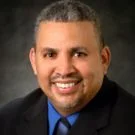Have you ever heard an “apology” that wasn’t really an apology? If you answered, “Yes,” you’re not alone. Sometimes apologies are used to avoid accepting responsibility rather than being a sign of regret or remorse. Popularized by James Whitcomb Riley (American poet), you’ve probably heard, an old adage going something like this:
“When I see a bird that walks like a duck and swims like a duck and quacks like a duck, I call that bird a duck.”
The “Duck Test,” a form of abductive reasoning, says you can generally characterize something by its behaviors. But there are animals in nature that look like ducks, swim like ducks and act like ducks but aren’t ducks (for example loons and coots) or said differently, everything isn’t as it seems. A classic example, often cited in abuse cases, goes like this; “I’m sorry I hit you, but you shouldn’t have disobeyed me.” I don’t know about you, but it doesn’t sound like much of an apology to me. So, what is an apology? Are apologies important to effective leadership? Should you apologize when you’ve done nothing wrong? Why should you?
“Apology is not just a social nicety. It is an important ritual, a way of showing respect and empathy for the wronged person. It is also a way of acknowledging an act that, if otherwise left unnoticed, might compromise the relationship. Apology has the ability to disarm others of their anger and to prevent further misunderstandings. While an apology cannot undo harmful past actions, if done sincerely and effectively, it can undo the negative effects of those actions” (Psychology Today, 2002).
I had a personal experience that illustrated the above points. I was a Division Director, a few years ago. People were complaining about the uncomfortable situation created by two supervisors that weren’t getting along. Employees were being asked to “take sides” and constantly heard them arguing and belittling each other. I scheduled a meeting to discuss their issues and challenges. We came up with some actions to improve the situation. I thought we made progress and could turn things around. A few days later, one of the employees filed a complaint. I was asked to explain what happened.
An investigation concluding that I had done nothing wrong, nevertheless the employee demanded an apology. The attorneys were confident they’d win the case at the Hearing, but I said I would write the apology. I returned a few days later with an apology for the pain and discomfort that they experienced, and I asked for help in identifying how to better serve resolve the conflict. James 5:16 (NLT) tells us:
“Confess your sins to each other and pray for each other so that you may be healed. The earnest prayer of a righteous person has great power and produces wonderful results.”
A few days later the employee withdrew the complaint. I was asked why I wrote the letter. I simply answered, “sometimes people back themselves into a corner, and they need help finding a way out.” I thought to myself what would have happened if God hadn’t helped me out of the corner.
An apology isn’t the end of conflict or disagreement. It is the beginning of restoring the relationship. I may not have “done anything wrong”; but it would have been arrogant not to acknowledge the discomfort the employee suffered. We started working on communicating and rebuilding our trust. It would take time; but we had help. As Charles R. Swindoll (Pastor, author, and educator) reminds us:
“God is a specialist at making something useful and beautiful out of something broken and confused.”
It wasn’t my intent to cause pain or discomfort. I wanted to resolve the conflict and build a better relationship between two employees. But accepting responsibility, made me responsible for initiating the steps needed to rebuild, and if possible, heal the relationship. As Cindy Gallop, Marketing Expert and TED speaker, says:
Recently, a leader said they preferred fear over agreement. It may be true that fear makes it easier to obtain compliance, but who wants to stay in that environment. The reality is leadership isn’t about doing what’s easy; it’s about doing what’s right.
I recently read an article that introduced me to Louise Penny, she writes the Chief Inspector Gamache mystery series. The article described the advice Chief Gamache received from a fisherman. The fisherman says get use to saying, and meaning, four statements on a regular basis:
- I don’t know. You can avoid conflict simply by acknowledging you don’t know instead of speaking untrue or inaccurate statements.
- I was wrong. Leaders quickly learn the amount of time spent being right is proportional to the amount others spend proving them wrong.
- I need help. It doesn’t matter how good you are, you simply can’t do it all yourself; and
- I’m sorry. Regardless of your title or role, saying I’m sorry shows humility and makes it possible to give and receive grace.
It doesn’t take much to improve your effectiveness as a leader and consistently practicing these principles is a great start. James 4:17 (NLT) tells us:
“Remember, it is sin to know what you ought
to do and then not do it.”
To learn more about the importance of the apology, register for one of our upcoming Encounter workshops.










